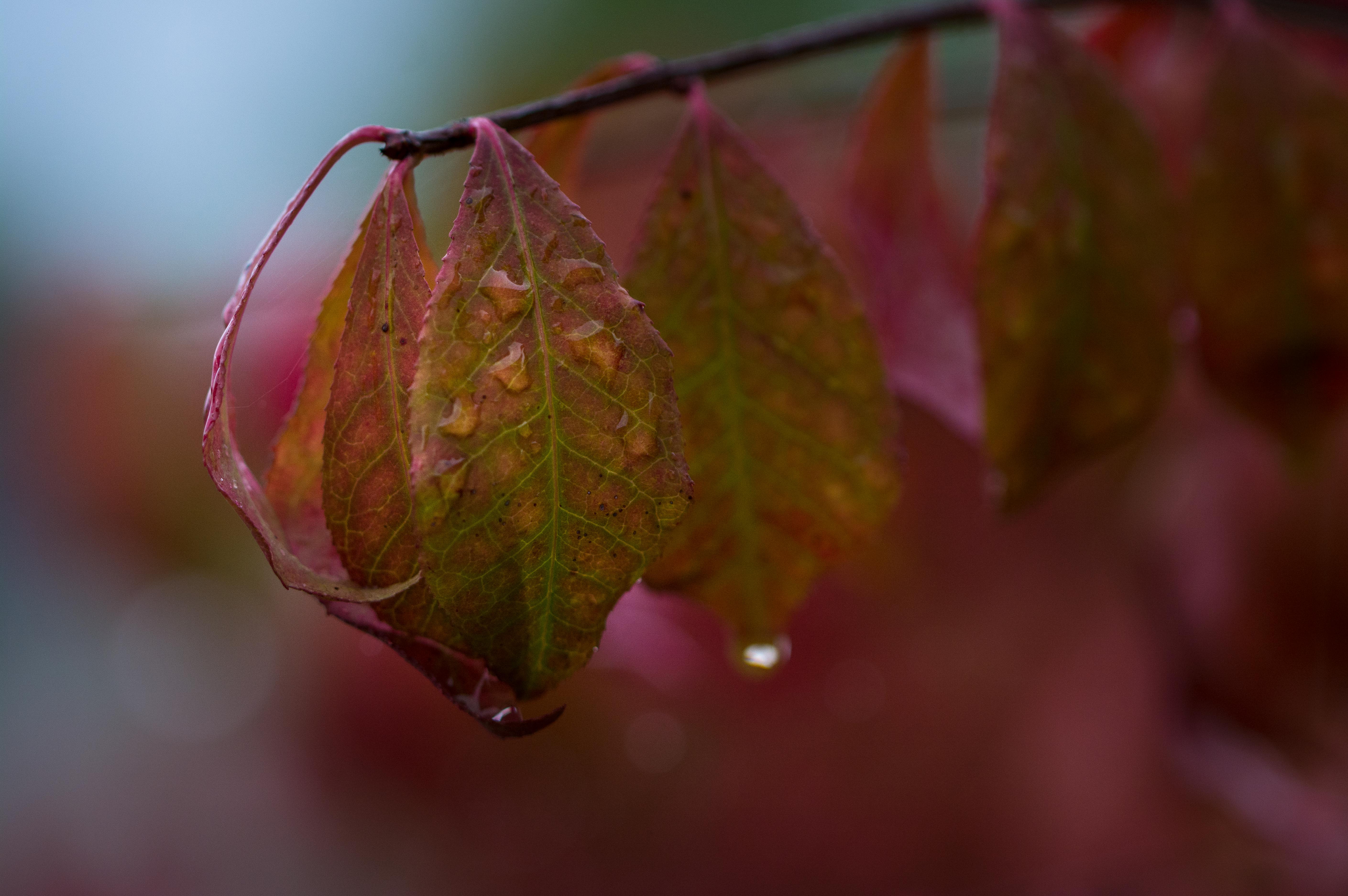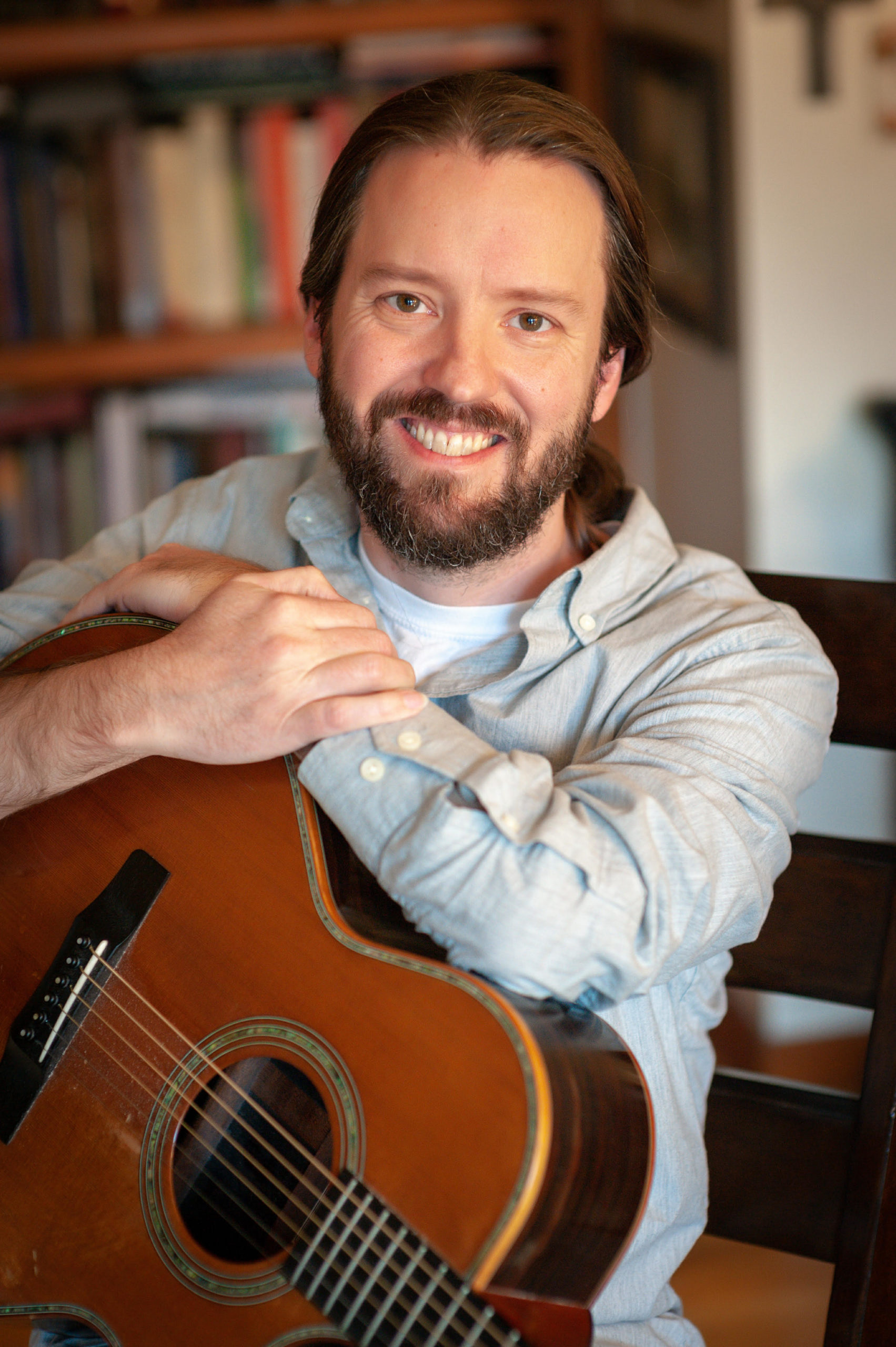Five years ago, I went for a walk behind a friend’s house on a chilled, cloudy autumnal day. The neighborhood was entirely new to me, as this was the first time I’d ever visited. I left the house during the day while they were at work, hoping to knead out some of the anxiety I felt in my body. The strangeness of life accumulates a gritty residue in the inarticulate oxbows of the body. It stagnates there where a place of prior current bent so severely that it cinched itself off entirely from the flow. This happens over years and years, of course. The diverted part hardly knows what’s happened until the lobbed-off water is left to itself and the river course moves on without it.
In the garden too, it moves on. The silver dust and the peach-cheeked rose wait like every plant – save the tumbleweed – for time, sunlight, and rainwater to come find them and tell them to grip and reach. The grasses and trees are steadfast, all cracked-hide and lithe beneath their skins. Their leaves sway and quake like schools of fish. They don’t move, though time and circumstance move through and around them. They branch and sup – their table being set for them by the seasons; they accept what they are given. Some among their kindred are brought low for burning, or brought low for building, or the most-blessed to be cut, sanded, and cupped like smooth throated souls that the river course of song might be remembered to them.
Tiny droplets fall from dizzying heights and make dark spots across the blue porch. They fall from blue to shadow the blue below. They are drops of shadow. Other times they are lit from within to glitter spiderwebs or hang like jewelled earrings from leaf-tips. It seems they may give either gift where it is needed. They may travel all that way like little scraps of sentences to fall into the oxbow lake saying, “Many waters. Still. There are others.” In slow-motion they burst upon impact, blooming like petalled-glass or teensy silver crowns. Sometimes they even tuck and hug their knees, skidding across the face of the lake before unsphering and sinking into the listening surface, so starved for news.
I saved all the letters from the first girl I loved in a dark brown-paper accordion file-keeper with a little elastic loop closure. I still have them, but I don’t read them anymore. They are like a path I walked years ago, or someone walked that I dimly remember. We wrote for seven years; she lived hours away. Those years and those letters remain folded in cool darkness; the breath spun into cursive loops, into lead or ink is held still forever. At some point the letters ceased; the river course did not. Once or twice since, entirely unlooked-for, there’s been a certain scent that has fallen on me like a three-hour thunderstorm all in one moment; seven years of enfolded words soaking me to the bones, warm. I don’t even know what the scent is, until it is. That rain is clean.
The proscenium is the frame around the stage at a theatre. I learned this recently from my friend James. We were talking about storytelling and he mentioned that the proscenium creates an effect like looking through a window into another world. In older theatres, the proscenium can be quite elaborate, gilded, and immense. I’ve wondered if the human face itself is a kind of proscenium, framing a window open onto another world. Or maybe all of this world is just that. Some faces have disappeared for us that were once full of light, flung open like morning laid lazily across a new garden – sprouts tumbling upward anti-gravity-like. Gravity has pulled the curtain down just behind the proscenium, the dusk descended upon the scene like dust on the auditorium seats or like darkness across the plain paper faces of old letters. Shakespeare’s theatre was called The Globe. Here is one more globe waiting for the pit to raise bows to herald-strings and cue the curtain’s parting.
I can hear more than one clock ticking in this quiet house where I sit alone writing this. They make a soft volley back and forth, as if neither one really wants to keep ahold of time, and they toss it between them like a hot potato. Or the sound may be like a limping man with hard-soled shoes clopping down a steamy, narrow street; his cane says a–clip, the limp says and-a-clop. Still, moments do slip away from time, like a kissers behind the barn; or places accumulate a holy endurance like oxbows cut-off from the terminus of time. Time flows in and around them, yet they stand apart – great ageless integers prophesying. They say, “not all is bitten by that snake.” That same voice wells-up into tide-pools making little nook-worlds of memory, of prayer, of promise. The strange song of love bursts from the dark undulating mirror like a Kingfisher ablaze, as Jonah’s sign, caught, slips as easily as you please down his slender throat.
I visited the little basement chapel several weeks ago and sat just nearly in the spot where I touched the little golden bell. Like the child adventurers in Charn, I chose, and woke griefs I had not known could be. That thin ringing crescendoed till the glass shook from the mantle and popped on the floor, and the night crowded with dark mares stamping out the starlight. I woke, vomited upon midnight, with eyes scalded by the dark. Nothing but a wall of black. In that place, I heard a voice that seemed to come from two places at once. Just beside me and far overhead seeping through stone and soil. It whispered like many waters. It crept through my crypt to caress me. It had beat me to rock bottom and like some bioluminescent spelunker, wove a threaded way through those caves back to the sunlands. My eyes are still adjusting to the light and the gleam of the glittering stipple I picked up as I made that crawl. Some things were lost, wasted; other things that gleam against the gloom came within reach.
I don’t believe that light needs dark to see. Nor marriage divorce. Nor truth lies. Nor life death. Though they often march together for the time being – wheat and tares. Life comes not from death, but up through it in stinging defiance. The river branch bends and clamps in on itself, leaving the living flow, sealing its encircled self with itself. But that water exhales, convalescing into cloud and swims the sky again till it is given like a word from a mouth to cohere upon the earth, baptised out of the high blue of heaven. Named like the winepress names. Named like the olivepress names. The hardest thing to do is say what you truly mean; Michelangelo chipped away to free the slaves from the stone. Crying out from within the inarticulate, the rivulets course and course-correct, bedding-down and leaving restless beds. And the tumble of the autumnal leaves splinter light like slag sprayed from struck steel.
The exquisite featured image is from Julie Jablonski and used with her permission for Cultivating and The Cultivating Project. We are grateful and rejoice in celebrating her beautiful work.
Matthew Clark is a singer/songwriter and storyteller from Mississippi. He has recorded several full length albums, including a Bible walk-through called “Bright Came the Word from His Mouth” and “Beautiful Secret Life.” Matthew’s current project, “The Well Trilogy,” consists of 3 full-length album/book combos releasing over 3 years. Each installment is made up of 11 songs and a companion book of 13 essays written by a variety of contributors exploring themes around encountering Jesus, faith-keeping, and the return of Christ. Part One, “Only the Lover Sings” is available both as an album and as a companion book.
Matthew also hosts a weekly podcast, “One Thousand Words – Stories on the Way,” featuring essays reflecting on faith-keeping. A touring musician and speaker, Matthew travels sharing songs and stories in a van called Vandalf.
Leave a Reply
A Field Guide to Cultivating ~ Essentials to Cultivating a Whole Life, Rooted in Christ, and Flourishing in Fellowship
Enjoy our gift to you as our Welcome to Cultivating! Discover the purpose of The Cultivating Project, and how you might find a "What, you too?" experience here with this fellowship of makers!


Add a comment
0 Comments